Comcast NBCUniversal and The Arc Collaborate to Make Life-Changing Impact With Digital Skills Efforts for People With Disabilities
For people with intellectual and developmental disabilities (IDD), digital access and skills are a critical component of gaining independence. In 2021, The Arc and Comcast NBCUniversal once again teamed up to open digital doors for and with people with IDD.
The Arc and Comcast NBCUniversal have a long-standing partnership to do this work – in 2020, the corporation renewed its support with $400,000 for our Tech Coaching Centers and to buoy chapters that have been negatively impacted by the COVID-19 pandemic. The Arc’s national network of nearly 600 chapters provides vital resources and services to individuals with IDD and their families to promote greater independence and opportunity in the community. Through this partnership, since 2017, more than 2,160 clients have received basic digital skills training at 19 sites around the country.
This year, the needs were dire, and the impacts of this tech expertise spanned many aspects of life, including vital health support, access to education and employment opportunities, and a remedy for ongoing isolation in the pandemic.
“For years, our partnership with Comcast NBCUniversal has laser-focused on how technology can improve the lives of people with disabilities. What stands out this year is the stark, life-changing impact of this work. We have all experienced challenges since the start of the pandemic, but for many people with disabilities, the disruption to their lives could have been catastrophic. Our chapters supported people to withstand this storm, and gain new skills and grow,” said Peter Berns, CEO, The Arc.
Here is a sample of how this program impacted the lives of people with disabilities across the country.
Improving Health
Candy, The Noble Arc of Greater Indianapolis (Indiana)
Recently, Candy has begun experiencing the early stages of Alzheimer’s disease. When Candy becomes frustrated with lapses in memory, her tech coach reminds her to visit the computer lab. There, they work together on pulling up websites where she can listen to her favorite country songs. With Candy taking the lead as much as possible and a tech coach providing support, Candy logs onto YouTube and chooses her music. Music activates a different part of the brain than the areas impacted by memory loss, so Candy can remember the lyrics and sing along with all her favorite artists. Sometimes all she needs is 20 minutes of relaxing to her favorite songs to reset her day.
Cesar, The Arc of Weld County (Colorado)
In a previous job as Office Assistant years ago, Cesar demonstrated his aptitude and interest in computer work. In fact, many of his electronic forms are still used at the organization today. This year, Cesar received a Chromebook from the chapter and his tech abilities improved even more, allowing him to participate in many virtual engagement opportunities. In particular, Cesar has benefitted from telehealth. At times, Cesar experiences significant anxiety when preparing to travel via bus to medical appointments. In a tech coaching session, he learned how telehealth could ease his apprehension and maximize his self-care and health management. A bonus from this session was Cesar met a new friend who shared that she would be delighted to support Cesar when he needed to travel to an appointment. Cesar’s connections are growing online and offline, leading to overall improved health and outlook.
Remedying Isolation in the COVID-19 Pandemic
Joseph, The Arc of Lane County (Oregon)
Joseph is very social. Before the pandemic, he would spend his days visiting with friends and volunteering at a local food pantry. With no social media, technology, or even internet, he was extremely sad when in-person programming shut down. With tech coaching, Joseph was able to acquire a tablet, create a Facebook account and send messages to people he has missed over the last year and a half. He quickly reconnected with about 50 friends! Joseph has also learned how to use a transportation app to find bus routes to places he wants to visit. He is now able to communicate with some of his favorite people and cherishes this newfound social outlet.
Wesley, New Star Services (Illinois)
Wesley wanted to learn how to use an iPad, specifically to learn how to use Zoom to have meet ups where he could see his friends. Through four in-person sessions, he learned how to access Zoom on the iPad, begin and end the session, and adjust the volume as needed. Gaining the ability to connect with friends and family, especially during this time, is important to help combat feelings of isolation and support mental health. Wesley is able to virtually connect with the people who are an important part of his life.
Accessing Education and Employment Opportunities
Mari, The Arc of Lane County (Oregon)
Mari wants to get her GED and go to cosmetology school. She had tried taking the GED prep classes at community college but was often unable to attend due to a lack of transportation. Although her home has Wi-Fi, she had nothing more than a gaming console. Now, she has purchased a laptop and works on educational modules at her convenience from home. With the support of a tech coach, she has learned to utilize Google Docs to write essays, Grammarly to help her with spelling, punctuation, and grammar, and Khan Academy to work through academic education modules. She is also using other websites to practice her reading and writing skills. Mari is now enjoying the learning process and is feeling more independent and confident as she works at her own pace toward her educational goal.
Samantha, The Arc of Southern Maryland
At the beginning of 2021, a clerical position at the chapter opened, and Samantha saw the opportunity to learn more skills and take on more hours and responsibilities. She trained diligently until she was comfortable with the computer program necessary to do this job. Samantha knows she is making an impact, sharing “I like being able to help employees.” Her boss says, “She is a great resource to the department.”
“When we provide access to digital skills training, we create opportunities and pathways to independence that can be life-changing, especially for those living with disabilities,” said Dalila Wilson-Scott, Executive Vice President and Chief Diversity Officer of Comcast Corporation. “Partnerships like the one we’re proud to share with The Arc – and as a result, the many lives we’re able to help impact – are at the heart of what drives us each and every day at Comcast. We’re so very honored to continue to grow our work together and help enrich even more lives.”
Comcast NBCUniversal’s partnership with The Arc is part of Project UP, the company’s comprehensive effort to address digital inequities and help build a future of unlimited possibilities. Backed by a $1 billion commitment to reach 50 million people, Project UP is focused on connecting people to the Internet, advancing economic mobility, and opening doors for the next generation of innovators, entrepreneurs, storytellers, and creators.






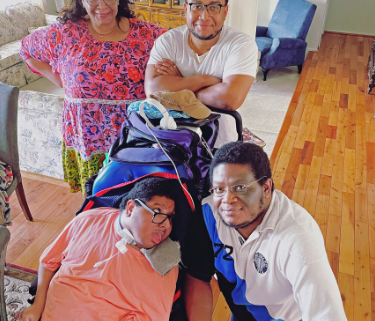
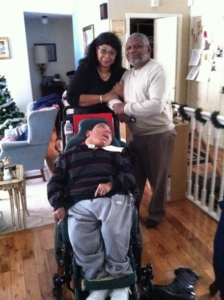

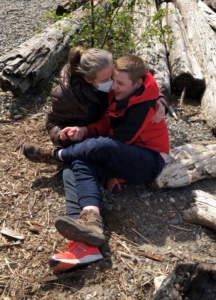 For moms like Molly, the past four months have meant long-overdue help in making ends meet. Molly works full time and manages the care for her 15-year-old son, Reid, who has a condition called Angelman’s Syndrome. Reid requires specialized caregiving for feeding, diaper changes, and constant monitoring for safety due to seizures and mobility issues.
For moms like Molly, the past four months have meant long-overdue help in making ends meet. Molly works full time and manages the care for her 15-year-old son, Reid, who has a condition called Angelman’s Syndrome. Reid requires specialized caregiving for feeding, diaper changes, and constant monitoring for safety due to seizures and mobility issues.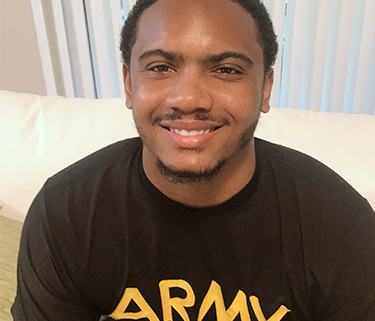
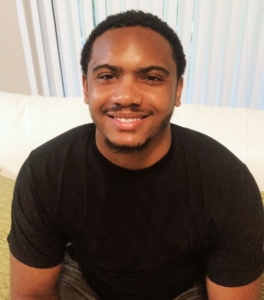 In 2010, Neli Latson was an 18-year-old special education student with autism who was sitting on a bench outside his neighborhood library waiting for it to open. Someone called the police reporting a “suspicious” Black male, possibly with a gun. Neli had committed no crime and was not armed, but being a young Black male with autism, he would soon experience the tragic results of a system stacked against him.
In 2010, Neli Latson was an 18-year-old special education student with autism who was sitting on a bench outside his neighborhood library waiting for it to open. Someone called the police reporting a “suspicious” Black male, possibly with a gun. Neli had committed no crime and was not armed, but being a young Black male with autism, he would soon experience the tragic results of a system stacked against him.






